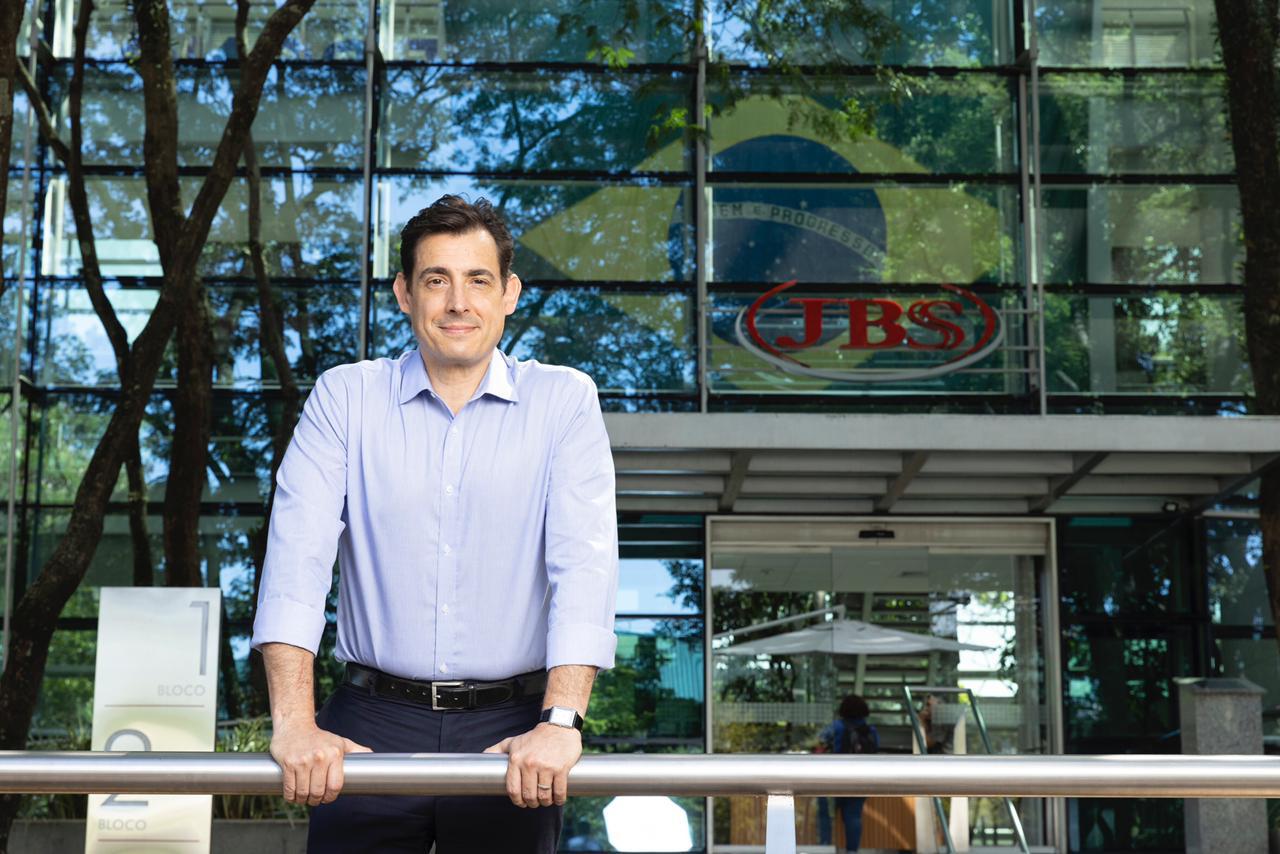Q&A with Mauricio Bauer – JBS’ Sustainability Director

What attracted you to the role and progressing JBS’ sustainability agenda?
Sustainability has been the focus of my career. I have spent years in the private sector and in NGOs, fostering collaboration to help advance responsible production and sourcing practices of forest-risk commodities. When I was invited to be the Sustainability Director at JBS, I saw a great opportunity to achieve one of my top professional goals. JBS is a global leader in the protein-based food industry and is well positioned to promote a sector-wide transformation, producing food to feed the world while sustaining our planet.
JBS has committed to become Net Zero by 2040. How do you achieve this?
Acting now is critical for business, people and our planet. This is not something that happens overnight, but a journey towards a common goal. We see sustainability in the 21st century as a pre-competitive issue. All companies have the responsibility to set and implement ambitious climate commitments, with science-based, data driven, measurable goals to achieve carbon-neutrality. JBS is fully aligned with these market expectations and consumer demands. We will tackle this challenge and make it happen by 2040.
What is the main challenge in this Net Zero Journey?
We see the main challenge being associated with engaging the entire sector and providing a clear roadmap for a necessary transformation. We expect all companies in the marketplace, as well as all our suppliers and customers, to move in the pursuit of carbon neutrality. We know this journey will be much more effective if all players in our supply chain and our market move in the same direction.
You’re rejoining industry following several roles in the third sector. What have you learned from this past trajectory?
I’ve worked in the private sector and in non-governmental organizations, which has provided me with clarity on the expertise of each. NGO’s have vast technical knowledge and robust scientific analyses for the best outcomes for conservation. The private sector has knowledge of market-shaping forces and an understanding of the pace and hindrances for the implementation of necessary changes. I believe this understanding of such synergies will advance JBS’ sustainability agenda and enhance collaboration to achieve our common goals.
In that sense, how can the private and nonprofit sectors interact to face the climate challenge?
Collaboratively, we need to be partners, not adversaries. The private sector and NGOs, as well as government and academia, must work together. Each one has its role to play, and they will be more successful working in tandem, prioritizing key issues, collecting, and sharing data. We only have one planet and must preserve it.
What role can agriculture and the food industry play in the face of climate change?
Continuous improvement of the productive sectors, including technical advancements in food production, is paramount. In the beef value chain, there are already several solutions to minimize the environmental impacts of cattle ranching. Some techniques are ready, and others are in the development stage. We must find ways to increase food production to meet a growing population while reducing the carbon footprint of production chains. The food and agriculture sectors have a fundamental role to play in investing in research and collaboration to promote this necessary change.
